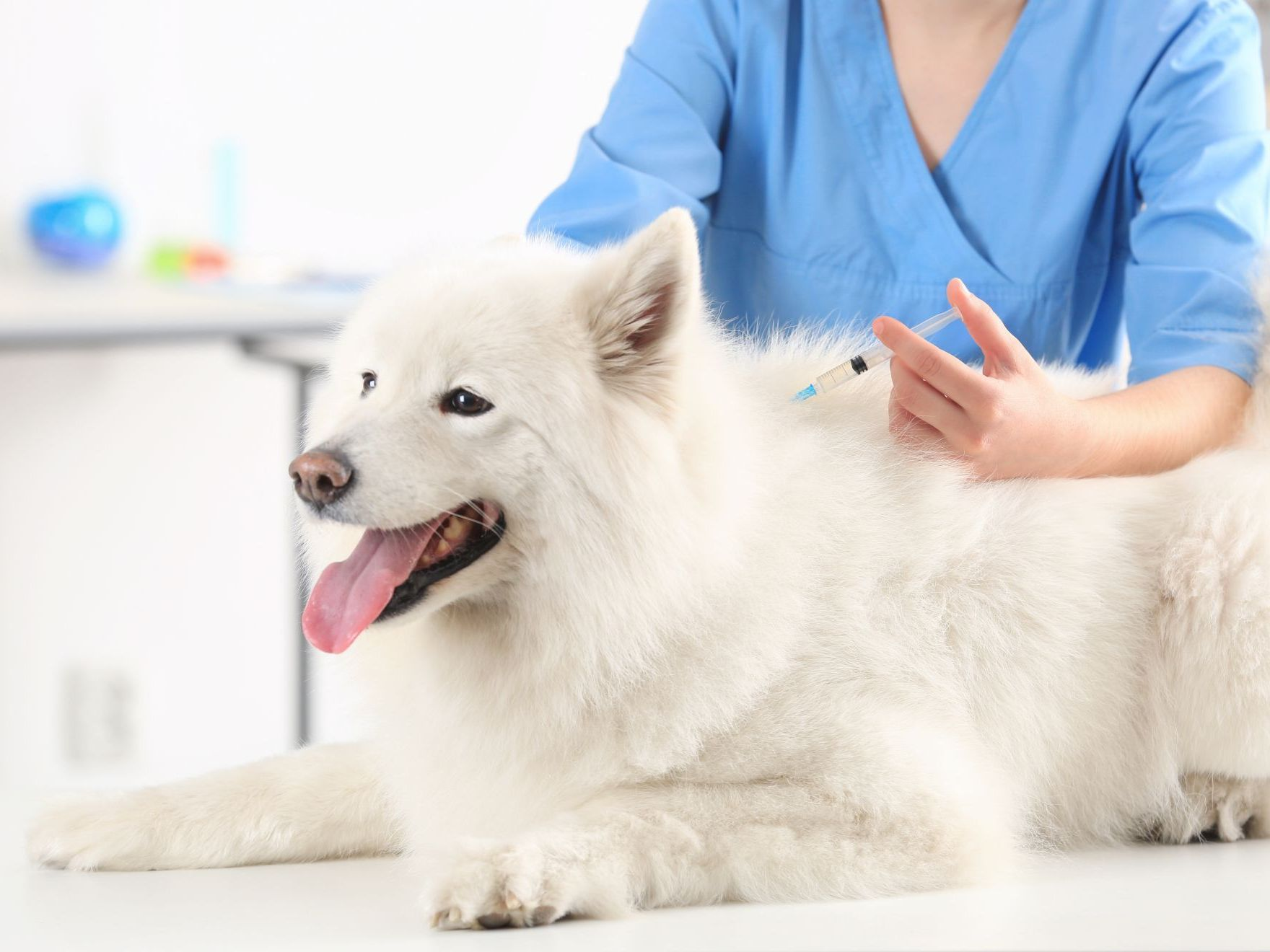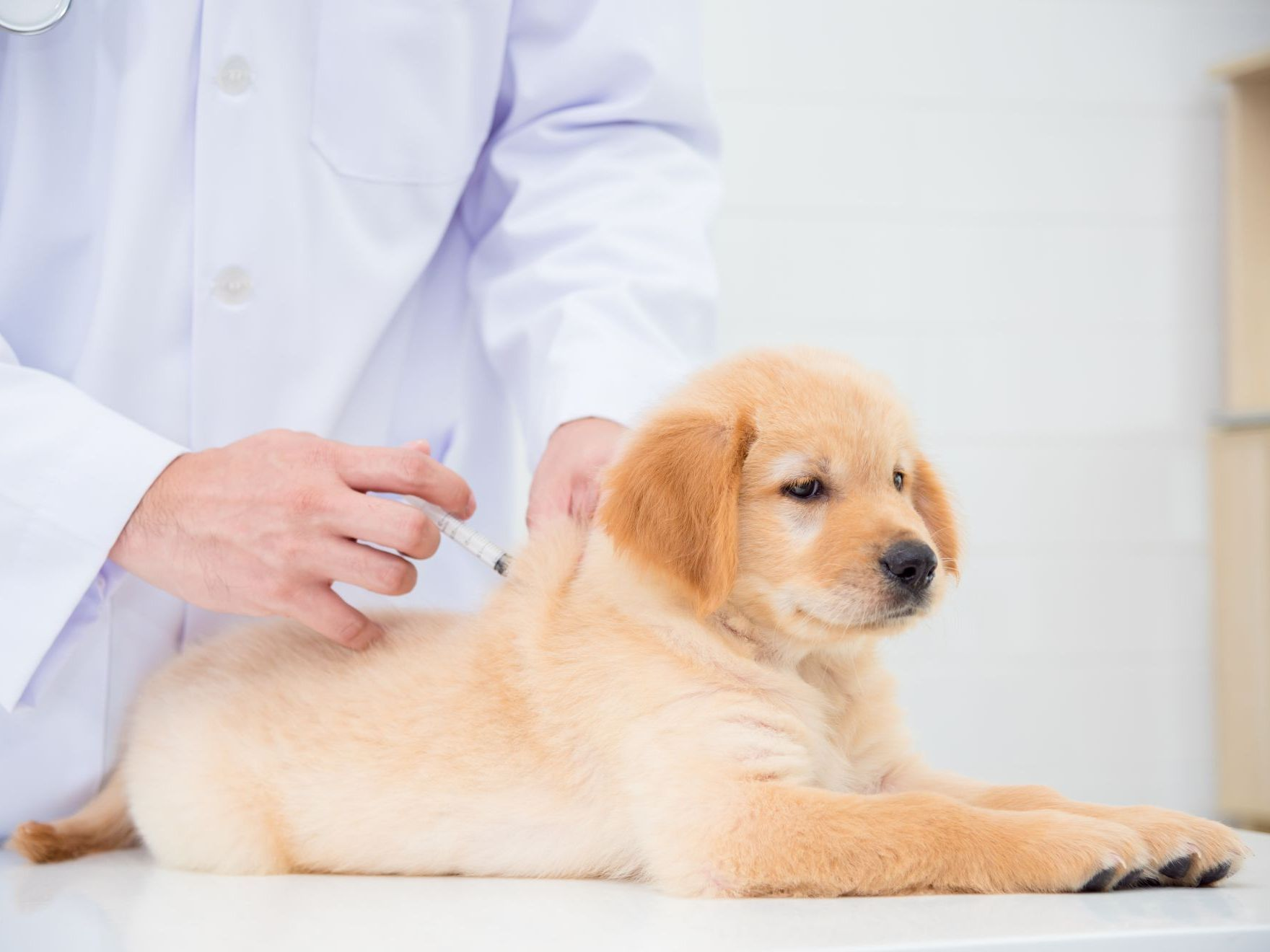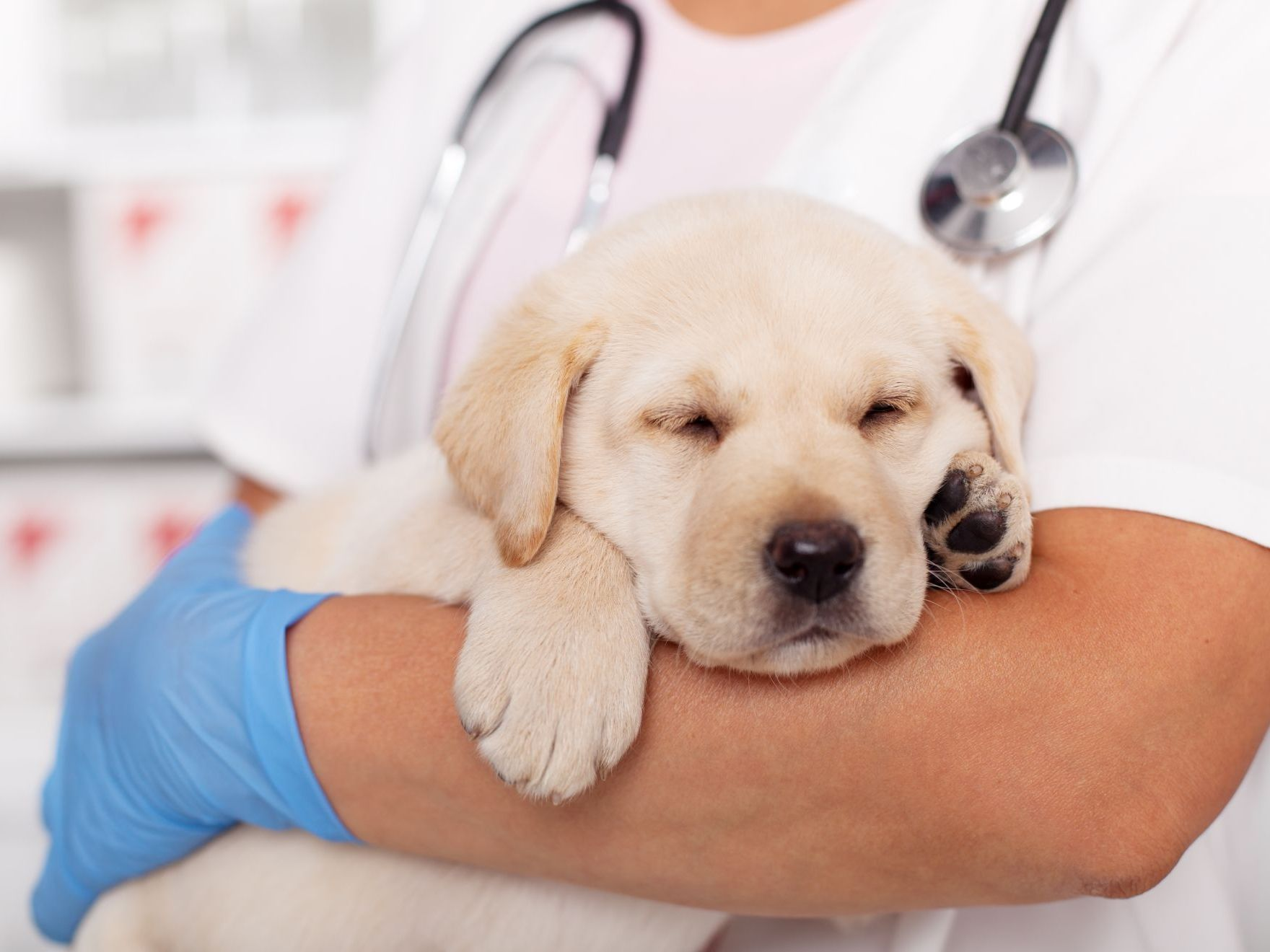Why do dogs need vaccines?
Vaccines—for adult dogs and puppies alike—serve as a vital shield against a range of potentially fatal diseases. As a devoted dog owner, you can support your loyal companion’s long-term health and well-being by ensuring they receive the core vaccines for dogs your vet recommends. Doing so is an act of caring and responsibility that benefits not only your dog’s longevity and ability to thrive but also safeguards the health of your entire community.
Article

The vital importance of dog vaccinations
Vaccines provide critical immunity against potentially life-threatening diseases caused by viruses, bacteria and other pathogens. That’s why it’s important to vaccinate your dog. Whether you have a new puppy in the household or you’ve adopted an older shelter dog, vaccinations are an integral part of their preventative healthcare.
Puppies are born with nearly no immunity and then will receive some from their mother's milk but this immunity diminishes as they grow. Your puppy will require a series of dog vaccinations designed to bridge this gap and build a strong defence system to protect against harmful diseases. Adult dogs also require regular booster shots to maintain this immunity.

The benefits of vaccinating your dog
Other benefits of dog vaccination include improved longevity and quality of life as vaccinated dogs tend to be less susceptible to these diseases. Also, preventative vaccination costs are minimal compared to the medical expenses incurred in treating a full-blown disease.
Vaccination can also help prevent the spread of contagious diseases like parvovirus or kennel cough, helping ensure that our four-legged friends do not become carriers and transmit infections to other dogs or even humans.
Core vaccines for dogs: what’s in the shots?
The specific vaccinations your dog requires may vary based on factors such as age, lifestyle and geographic location. However, certain vaccines are considered core vaccinations and are generally recommended for all dogs due to their widespread risk.
These core vaccines include:
Protects against distemper, a highly contagious viral disease that impacts the respiratory, gastrointestinal and nervous system.
Guards against parvovirus, a highly contagious and often fatal disease that primarily affects the gastrointestinal tract. This virus is particularly dangerous for puppies.
Provides immunity against canine hepatitis and respiratory infections.
Essential for preventing rabies, a fatal zoonotic viral disease that affects the nervous system. Rabies can be transmitted to humans.
Non-core vaccines for dogs
In addition to core vaccinations, there are non-core vaccinations that may be recommended for puppies and dogs based on individual risk factors and lifestyle.
These non-core vaccinations may include:
Helps protect against a highly contagious respiratory infection called ‘kennel cough’.
Particularly important for dogs living in or visiting areas with a higher risk of exposure to Leptospira bacteria, which can be found in contaminated water sources or urine of infected animals.
Canine parainfluenza virus is commonly associated with kennel cough. This vaccine is sometimes included with the core vaccines.
Important for dogs living in regions with a high prevalence of Lyme disease-carrying ticks.

When do dogs get their shots?
The core vaccination schedule for puppies and adult dogs depends on the dog's age, health status, lifestyle, and local disease prevalence. Always consult with your veterinarian to create a tailored vaccination plan for your individual dog.
Typically, puppies receive their first vaccinations at six to eight weeks of age. They aren’t fully protected until they receive the full series of boosters which can take a couple of months. The puppy vaccination schedule overlaps their socialisation period. Taking care of your puppy’s health is essential to their well-being but socialisation is also an important aspect of their development.
There are safe ways of socialising puppies before vaccinations and boosters are fully complete. Some of these guidelines include supervised visits with vaccinated dogs and puppy training
Example of core vaccination schedule for puppies
Distemper, adenovirus and parvovirus vaccines:
6-8 weeks of age
First vaccination
10-12 weeks of age
Booster or second injection
14-16 weeks of age
Booster or third injection
Rabies vaccination is typically given at 12 to 16 weeks of age but can vary based on local regulations. The next booster is given one year after the initial rabies vaccination.
Example of core vaccination schedule for adult dogs
Distemper, adenovirus and parvovirus vaccines: After the puppy series, a booster shot is usually given at one year of age. Subsequent booster shots are recommended every one to three years depending on the vaccine used and your veterinarian's advice.
Rabies vaccine: After the initial puppy rabies vaccine, a booster shot is usually given one year later in areas where the rabies virus is endemic. Subsequent booster shots may be required every one to three years, depending on the type of rabies vaccine used.
What if you don’t know your dog’s vaccination history?
If you’ve adopted or acquired an adult dog with an unknown history, you will want to have your vet give them a thorough health check. Your vet will be able to answer relevant questions like when do dogs with an unknown vaccination status get their rabies shot, or when do dogs get their parvo shot?
Your vet will likely recommend giving your new dog the core vaccines as soon as possible. Because healthy adult dogs generally have robust immune systems, one set of vaccinations may be all that is necessary initially with boosters every one to three years. Depending on the vaccines used, however, some vets may recommend a booster shot one month after the initial vaccination.
Remember, dog vaccination schedules vary based on the specific vaccines used, local disease prevalence and individual dog factors. Regular check-ups with your vet will help ensure your dog receives the appropriate vaccinations to maintain their optimal health and protection against preventable diseases.

What side effects could your dog experience after vaccination?
While dog vaccinations are generally safe and effective, like any medical intervention, there is a possibility of vaccine reactions in some dogs. It's a good idea to be aware of these potential reactions and to consult your vet if you observe any unusual symptoms after your dog receives a vaccination.
Generally, the side effects of vaccines in dogs tend to be similar whether they receive the rabies, distemper, leptospirosis, bordetella or lyme vaccine or any of the other core or non-core vaccines.
- Localised swelling and soreness: Mild swelling, redness, or soreness at the injection site is a relatively common reaction and usually resolves on its own.
- Mild fever: Some dogs may develop a mild fever shortly after vaccination. This is the body's natural response to the vaccine and is usually self-limiting.
- Lethargy: This is generally a short-term reaction and should resolve within a day or so.
- Decreased appetite: This usually resolves within a day or so.
- Sneezing and mild coughing after intranasal injections: Again, these symptoms are self-limiting and resolve quickly.
- Agitation or behavioural changes: Some dogs may exhibit behavioural changes, such as increased restlessness or agitation after vaccination. Some dogs may start shaking after receiving a vaccine. These symptoms are usually mild and transient.
- Joint pain: Some dogs may experience temporary joint pain or stiffness after certain vaccinations, especially those containing modified live viruses. This usually resolves on its own and doesn't cause any long-term issues.
- Allergic reactions: In rare cases, dogs can have allergic reactions to certain vaccine components. Signs of an allergic reaction may include facial swelling, hives and difficulty breathing. Some dogs also have vomiting or diarrhoea after receiving a vaccine. Allergic reactions can be serious and require immediate veterinary attention.
Although side effects can occur, it’s important to note that the vast majority of dogs experience no adverse reactions to vaccinations.
If you notice any concerning symptoms in your dog after vaccines are given, it is essential to contact your veterinarian promptly. Vaccination protocols can be adjusted based on individual dog health and lifestyle factors, and your vet can help you make informed decisions to ensure your pet's on-going safety and well-being.
Related Articles
Like & share this page

